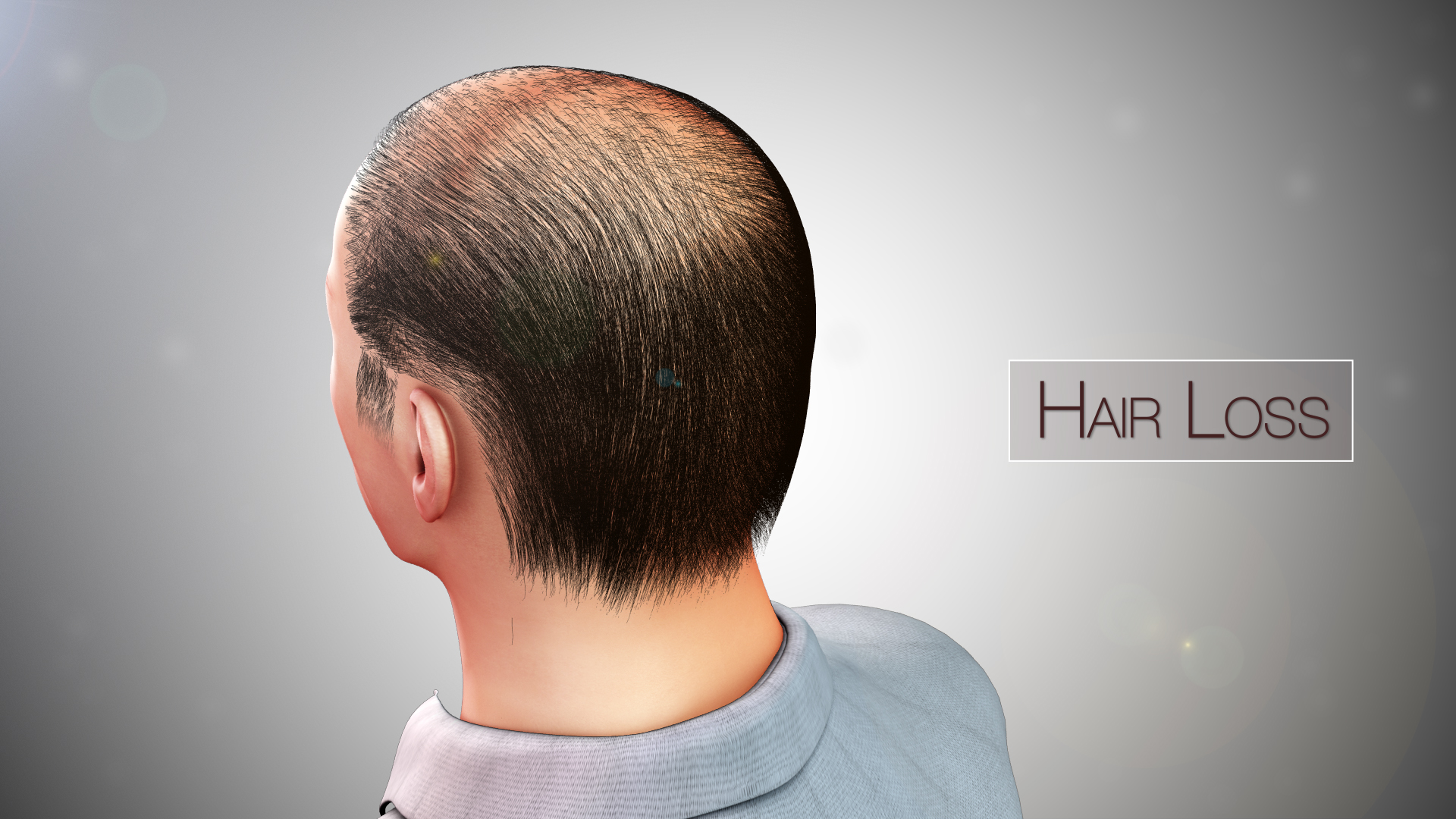Hair loss—also known as baldness or alopecia—may occur only on the scalp or the entire body. It may occur slowly over the years or it may occur all of a sudden. However, it’s quite normal to lose between 50 and 100 hairs a day. New hair generally replaces the lost hair, but in some cases, it doesn't happen. Hair loss affects more men than women. Around 80 million men and women in the US suffer from this condition.

Symptoms
Hair loss may be temporary or it may be permanent. It may be gradual or sudden. The most common signs and symptoms are:
- Gradual thinning on top of the head - This is the most common type which affects people as they grow old. In men, hair often begins to recede at the hairline on the forehead whereas women have a broadening of the part in their hair.
- Bald spots which may be circular or patchy
- Loosening of hair - A physical or emotional shock can cause hair to loosen suddenly. This type usually results in overall hair thinning but it is temporary.
- Hair loss all over the body - Some medical conditions or treatments such as chemotherapy can result in loss of hair all over the body. However, the hair eventually grows back in this type.
- Dandruff
- Lesions in the skin
Causes
Hair loss occurs when the hair follicle gets destroyed and is replaced by scar tissue or when the cycle of shedding and growth is disrupted. This can happen due to the following reasons:
- Family history
- Hormonal changes during childbirth, pregnancy, and menopause
- Medical conditions such as alopecia areata, thyroid disease, scalp infection
- Medications used in the treatment of cancer, depression, arthritis, high blood pressure, and heart problems
- Highly stressful events which could be physical or emotional
- A diet that lacks in nutrients and proteins
- Certain treatments and hairstyles
Treatment
Treatment for hair loss will depend on its cause. If it is due to a medical condition, the treatment will focus on curing that underlying treatment. If it is due to heredity, then treatment will include medicines and surgery. Minoxidil is an over-the-counter medication for topical application prescribed for both men and women. Finasteride is a prescription drug that is prescribed for men only. In case the medicines do not help, hair transplant surgery may be prescribed.
Unfortunately, genetic hair loss is not preventable. But for other types, one can easily prevent it by avoiding tight hairstyles, treating the hair gently while washing and drying, and avoiding harsh treatments on the hair.
Disclaimer: The information in no way constitutes, or should be construed as medical advice. Nor is the above article an endorsement of any research findings discussed in the article an endorsement for any of the source publications.
Sources-
- https://www.healthline.com/health/hair-loss
- https://www.mayoclinic.org/diseases-conditions/hair-loss/symptoms-causes/syc-20372926








